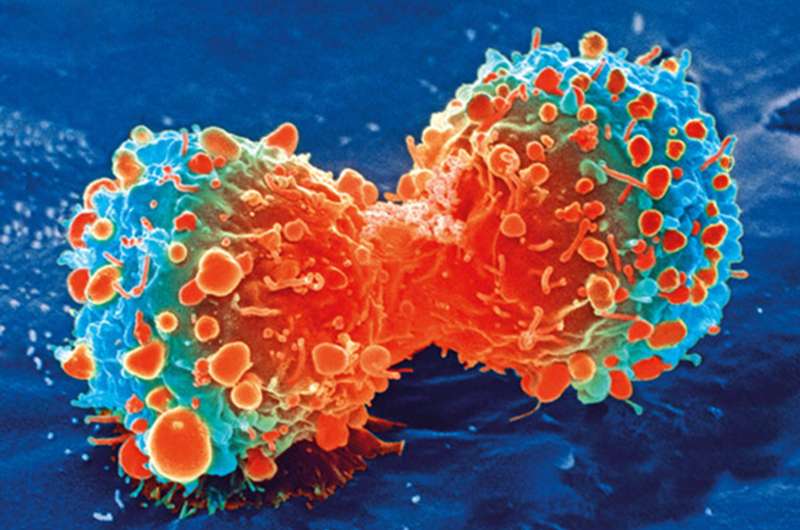Identification of LZTR1 leads to novel insights into RAS-driven diseases

Mutations in RAS proteins initiate many of the most aggressive tumors, and the search for pharmacological inhibitors of these proteins has become a priority in the battle against cancer. Michail Steklov, Francesca Baietti, and colleagues from the Anna Sablina lab (VIB-KU Leuven Center for Cancer Biology) identified LZTR1 as an evolutionarily conserved component of the RAS pathway.
Multiple genetic studies overwhelmingly point out for the role of LZTR1 in a wide range of human disorders, such as Noonan Syndrome (a genetic disease), liver cancer, childhood cancer, and Schwannoma, a benign tumor that affects nerves. The researchers found that LZTR1 contributes to human diseases by acting as a part of the ubiquitin ligase complex that mediates conjugation of ubiquitin to RAS proteins. This conjugation reduces RAS recruitment to the membrane and thus its activation and downstream signalling.
Prof. Anna Sablina (VIB-KU Leuven): "Despite of constant and exhaustive efforts to characterize RAS proteins, LZTR1 is the first novel RAS regulator, implicated in human diseases, that has been identified since years. Of course, this will be not possible without a help of our collaborators from UZ Leuven, VIB-UGent Medical Biotechnology Center, National Cancer Institute at Frederick, and University of Alabama. We hope that the discovery of this alternative mechanism of RAS regulation will lead toward novel therapeutic approaches for RAS-driven diseases."
More information: M. Steklov et al. Mutations in LZTR1 drive human disease by dysregulating RAS ubiquitination, Science (2018). DOI: 10.1126/science.aap7607














